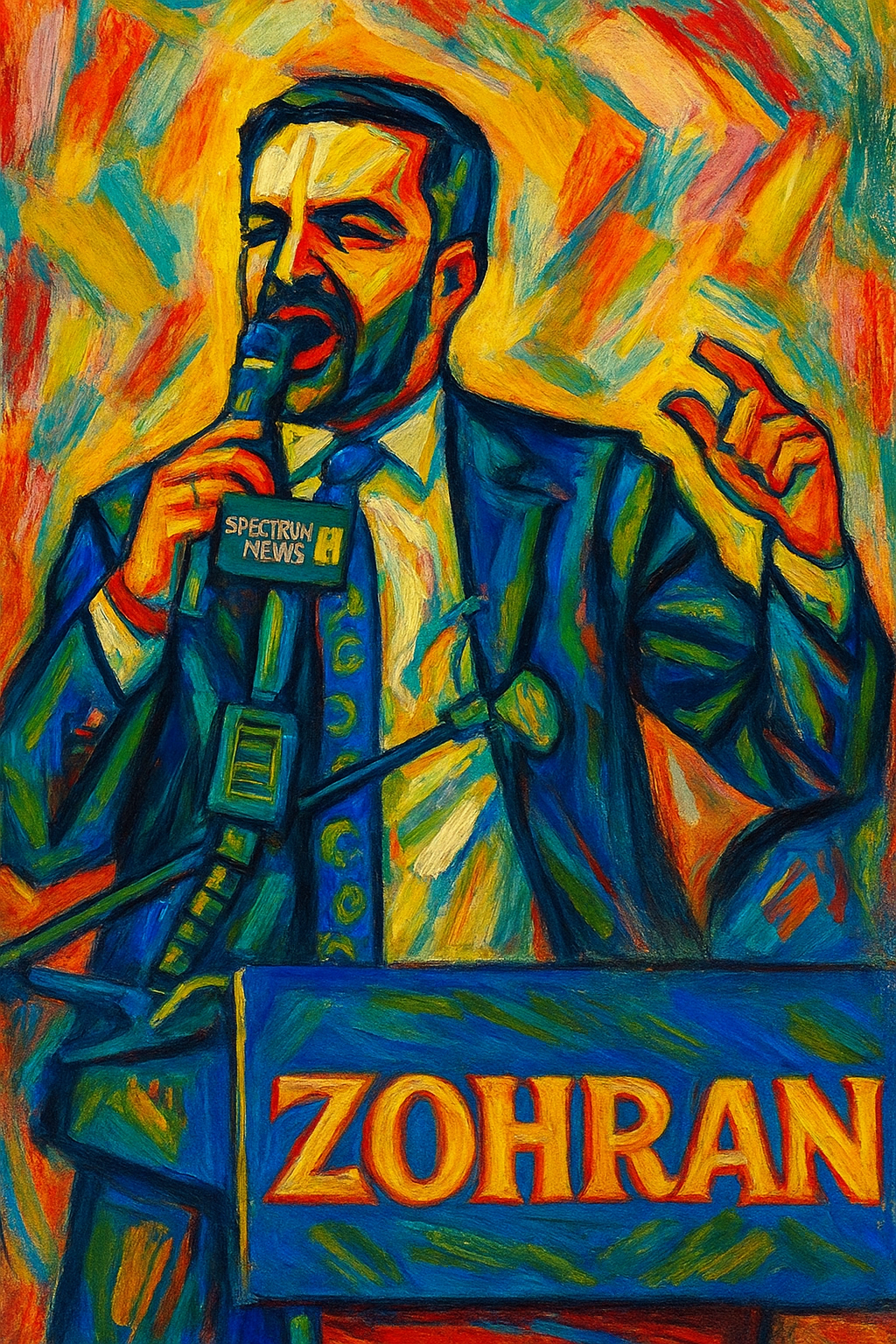An End To Watered-Down Politics?
What does the outcome of the NYC Mayoral election mean for the future of the democratic party? Photo courtesy of Taymaz Valley via Flickr.
Some elections shift power. Some elections shift conversations. What just happened in New York City is the latter.
Zohran Mamdani did more than clinch a nomination; he forced the Democratic Party to reckon with unapologetic, progressive ideas. His campaign wasn’t just about policies; it was a statement: we see you and we’re ready for the party to step up.
When Mamdani started to gain ground on the other candidates, especially Former Governor Andrew Cuomo, it became clear that this race was a signal flare. The era of cautious centrist incrementalism may be giving way to bold, structural changes.
For too long, Democrats have sold “pragmatism” as a virtue, as if compromise itself were a policy. But that approach has left too many people behind. Rent continues to climb, wages aren’t keeping pace, and public services often feel like they are being stretched to their limits. The party that claims to represent working people has started to sound more like the party of managed decline. Mamdani’s campaign didn’t create this frustration; it gave the people’s frustration a voice.
That voice isn’t quiet. It’s calling for free buses, rent freezes and a city-owned grocery store in every borough—policies that sound too radical only if you’ve never had to choose between paying for groceries or paying for the subway. Mamdani’s push for universal childcare and a $30 minimum wage by 2030 directly challenges the notion that “affordability” should be left to market forces. His proposals aren’t about expanding government for the sake of it; they’re about expanding dignity for the people who keep the city running.
What’s different here isn’t just the content of Mamdani’s policies, but what they represent for the Democratic Party. For decades, Democrats have operated under the assumption that the safest path to victory lies in the political center. The argument goes that if you want a Democrat in office, you have to elect a moderate; someone who doesn’t scare donors, business leaders or your moderate grandfather that you’re trying to get out to the polls.
Mamdani’s campaign complicated that logic. His unapologetically progressive platform resonated with city voters and people across the country who are tired of being told that change is only possible in half-measures.
His success proves that the party’s future might not hinge on finding the “least risky” candidate, but on finding one who actually connects with people’s daily realities. It suggests that a genuine belief in a candidate’s vision can be just as powerful a tactic as the calculation of electability. If anything, the past few years have shown that moderation doesn’t always guarantee victory, and it rarely inspires turnout.
In fact, this election saw turnout surge to historic levels. In the last four mayoral elections, fewer than a third of registered voters showed up at polling places, with a low of 23% in the 2021 election. This year, more than two million New Yorkers cast ballots. The last time this happened was in 1969 with John V. Lindsay’s re-election.
This election wasn’t about Mamdani; it was about what voters were willing to believe in again. The fear of the Democratic Party losing swing voters or alienating donors doesn’t inspire people to stand in line for hours to vote. Hope inspires people. Conviction inspires people. The sense that politics could actually mean something again — that’s what drove record-breaking turnout this time around.
New voters, especially young ones, weren’t showing up because they were told to “vote blue no matter who.” They showed up because they finally saw a candidate speaking to the issues they face every day.
Now, will every policy Mamdani ran on become a reality during his term? Maybe. Maybe not. But what matters is that he didn’t hide his beliefs to earn moderates’ approval or water down his message for political safety. He ran on principle — and won. That alone challenges the long-held idea that Democrats must play it safe to win.
Whether his mayoralty delivers on the full promise of his platform is still to be seen. But one thing is clear: Mamdani has changed the conversation. He’s proven that conviction can be as powerful as caution, that inspiration can mobilize more than fear, and that voters — when finally given something bold to believe in — will show up. The Democratic Party would be wise to pay attention.
